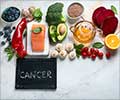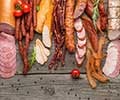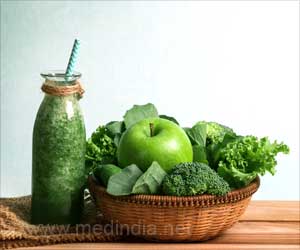What Foods Are Linked To Development of Colorectal Cancer?
1. Red Meat May Be the Culprit
Consumption of red meat is directly linked to the incidence of colorectal cancer. An interesting study found that the risk of colon or rectal cancer was twice as great among those who consumed red meat more frequently. Red meat includes beef, pork, veal, mutton, lamb, horse and mammalian meat
During cooking of red meat heterocyclic amines are produced that possess carcinogenic effect. These amines cause changes in the DNA that can lead to cancer. In fact the WHO has classified processed meat as cancer causing in humans.
Another interesting study found that the occurrence of colorectal adenomas (precancerous growths) was two-fold greater among individuals who ate fried, grilled and darkly browned red meat more than once a week as compared to individuals who consumed lightly browned red meat less often.
Hence, genetically predisposed people should strictly avoid eating red meat.
2. Limit Alcohol Consumption
Studies suggest that increased alcohol intake is a risk factor for colorectal cancer. Alcohol increases the expression of enzymes that are related to carcinogen metabolism. Acetaldehyde, an oxidative product of alcohol is responsible for colorectal cancer. Acetaldehyde in colon degrades folate, a B-complex vitamin that reduces the risk of colorectal cancer. Besides this alcohol suppresses the immune system and causes abnormal changes in the DNA. Hence, overexposure to alcohol can increase the risk for colorectal cancer.
3. Lower Your Intake of Trans Fat and Processed Food
Trans fat intake is associated with an increased risk of colon cancer, says research. Trans fat is one of the unhealthy fats that typically comes from margarine, cakes, biscuits, pastries and cream-filled candies. Trans fat irritates the inner lining of the colon, which gives rise to inflammation and
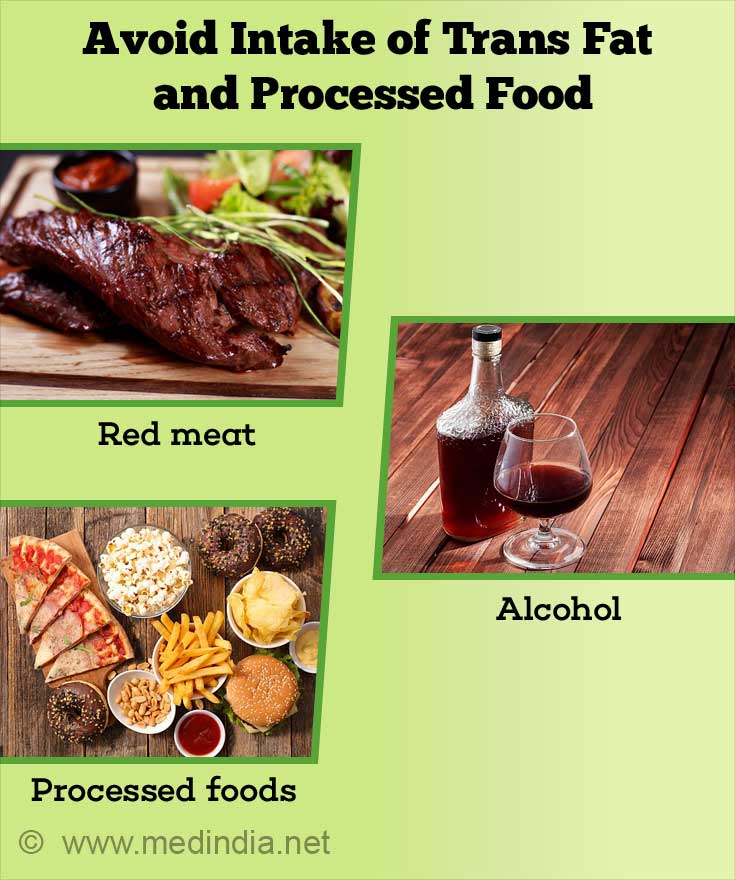
Foods to Eat For a Healthy Colon
Several studies including one from the Loma Linda University recommend plant based diet to be superior and minimize the risk of colorectal cancer. The four types of plant based diet include the following -
- Vegan – totally avoid products of animal origin
- Lacto-ovo vegetarian – can include eggs and dairy but no meat
- Pescovegetarian - fish can be consumed but no meat
- Semivegetarian – occasional consumption of meat and fish
Studies suggest that the more colorful the diet, the better and recommend including a rainbow of fruits and vegetables in the daily diet.
Add Dairy Products to Your Daily Diet
- The presence of calcium, other micronutrients and bioactive constituents present in dairy products protect against colorectal cancer.
- Calcium suppresses oxidative DNA damage, inhibits division and spread of cancer cells and enhances death of cancer cells.
- Besides this, conjugated linoleic acid present in whole milk possesses antioxidant, anti-inflammatory and immune modulatory properties. It inhibits initiation of cancer formation in the colon and the rectum.
- Moreover, fermented dairy products like yogurt exert a protective effect against colorectal cancer. The lactic acid bacteria present in it prevent adhesion of carcinogens to the inner lining of the intestine and reduces inflammation of the intestine.
- Fresh fruits and vegetables contain several potential anti-carcinogenic compounds, which include dietary fiber, antioxidants, folic acid and other B-complex vitamins and minerals.
- Of all vegetables, cruciferous vegetables contain anti-cancer compounds that prevent multiplication and spread of cancer cells to other organs of the body.
- Studies have reported that intake of 2 servings of fruits and 3-4 servings of vegetables per day is associated with a reduced risk of colorectal cancer.
- Moreover, dietary fiber present in fruits and vegetables also prevents the adhesion of heterocyclic amines from other foods to the inner lining of the intestine.
Note: Whole and fresh fruits and vegetables are always healthier than fruit juices. Always choose fresh ones over canned ones.
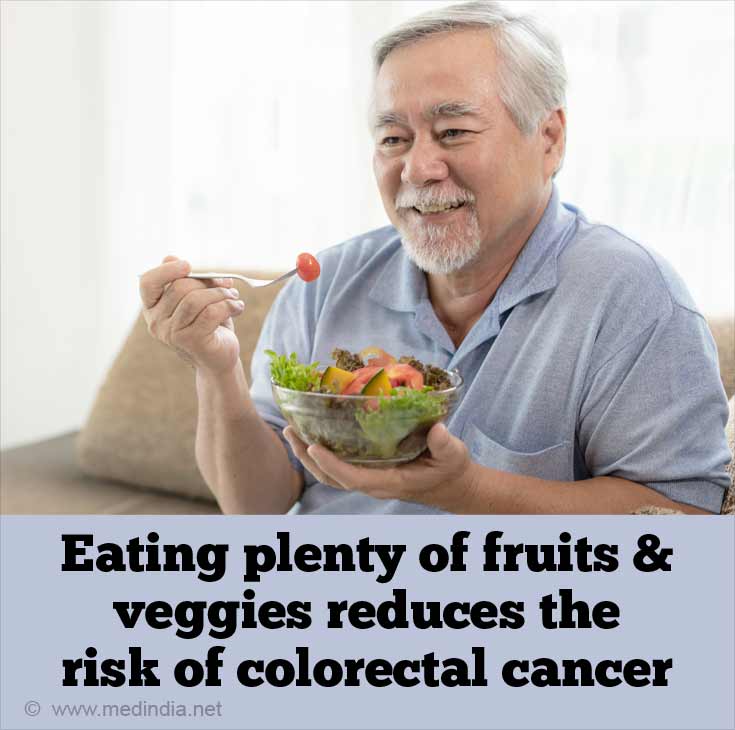
Choose Whole Grains over Refined Grains
- High intake of whole grain has been related to lower risk of colorectal cancer risk in all. Whole grains contain germ and bran, which are rich sources of various compounds with anticancer properties, including fiber, antioxidants and phytochemicals.
- An interesting study found that regular consumption of whole grains reduced the risk of colorectal cancer by 35%. Dietary fiber present in whole grains has the ability to influence the gut environment.
- Insoluble fiber in whole grains increases the bulk of the contents in the intestine, thereby diluting potential carcinogens in the colon. It reduces the transit time and decreases the exposure of the inner lining of the colon to the harmful compounds.


